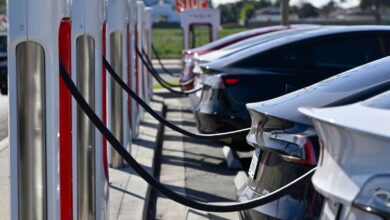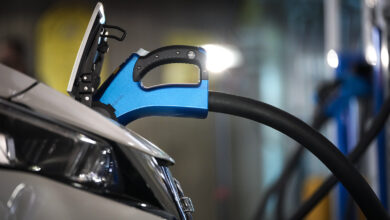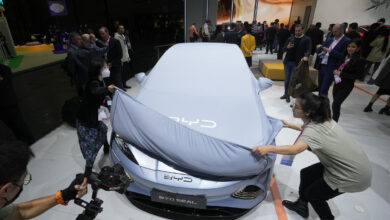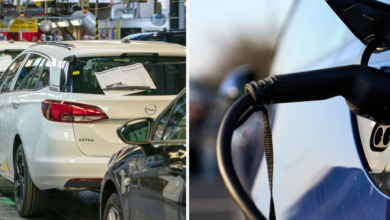Hertz Is Selling Off More Electric Vehicles after Major Losses
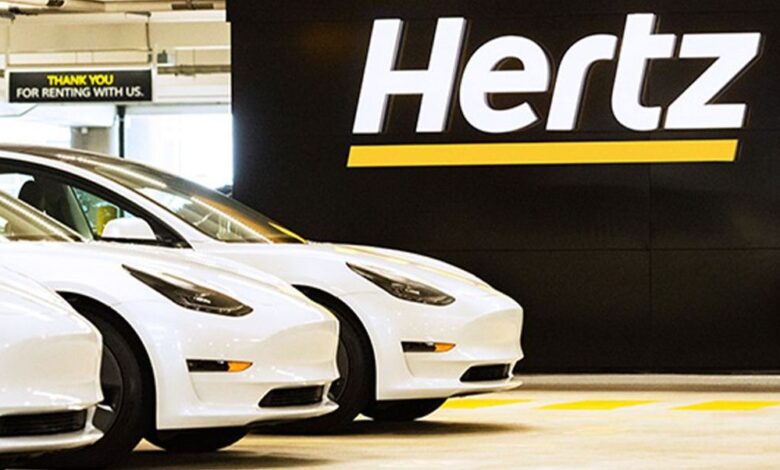
- Hertz reveals it will reduce its EV fleet by an additional 10,000 cars, after suffering higher-than-expected depreciation of its electric models.
- The rental giant, which has recently seen its CEO resign, will sell off 30,000 EVs this year after posting a loss of $392 million in Q1 2024.
- Hertz had planned to buy some 100,000 Teslas during the pandemic rebound in travel in 2021, expecting reduced costs, but is not believed to have taken delivery of that many.
Hertz may have been bullish on EVs after the initial turmoil of the early pandemic set off a fleet selling spree, making plans to buy some 100,000 Teslas in renewing its fleet in 2021 in addition to EVs from other brands.
But despite what Elon Musk said at one point, EVs have not turned out to be an appreciating asset.
Now the rental giant is rapidly heading for the exits after a series of painful losses.
Hertz intends to get rid of 30,000 EVs, or 10,000 more than initially planned, as part of its EV downsizing, citing substantial vehicle depreciation that increased $588 million in the first quarter of 2024 compared to a year prior.
“The company incurred a $195 million charge to vehicle depreciation to write down the EVs held for sale which were remaining in inventory at quarter-end to fair value and recognize the disposition losses on EVs sold in the period,” the rental car giant said in a filing.
Nominally, Hertz aims to make money on selling its used rental cars after they accumulate a certain mileage. At least, it has generally made money in the past via this business model with internal-combustion vehicles. But the same has not been true for used EVs.
The culprits, once again, have been high maintenance costs and depreciation of EVs it has purchased for its fleets, while on the consumer side the EV charging experience has seen its own issues.
The result has been a loss of $392 million in the first quarter, despite a 2% growth in revenues over the same period in 2023 amid overall revenues of $2.1 billion.
Hertz had already parted ways with CEO Steven Scherr back in March in a resignation seen as linked to the EV gamble failing to pay off, as promising as it might have looked a couple of years earlier.
“Fleet and direct operating costs weighed on this quarter’s performance,” said Gil West, Hertz’s new chief executive officer who assumed the post in April. “We’re tackling both issues—getting to the right supply of vehicles at an acceptable capital cost while at the same time driving productivity up and operating costs down.”
Among other things, Hertz’s experience with EVs could certainly temper other rental giants’ appetite for EV fleets in the near term, especially since the math behind EV residual values in rental car fleets isn’t likely to change anytime soon.
Will EVs eventually become popular in rental fleets, or will the economics of selling used rental cars force a different reality for rental car companies? Let us know in the comments below.
Jay Ramey grew up around very strange European cars, and instead of seeking out something reliable and comfortable for his own personal use he has been drawn to the more adventurous side of the dependability spectrum. Despite being followed around by French cars for the past decade, he has somehow been able to avoid Citroën ownership, judging them too commonplace, and is currently looking at cars from the former Czechoslovakia. Jay has been with Autoweek since 2013.
